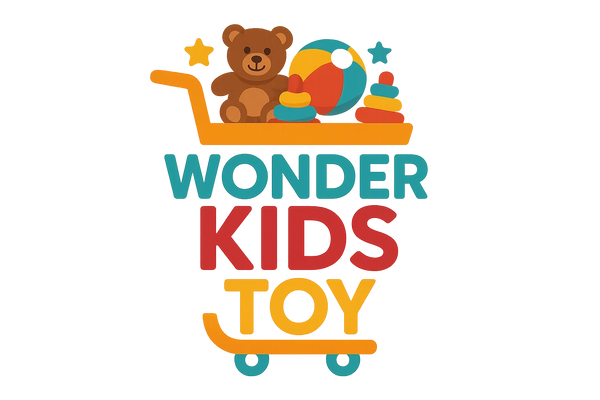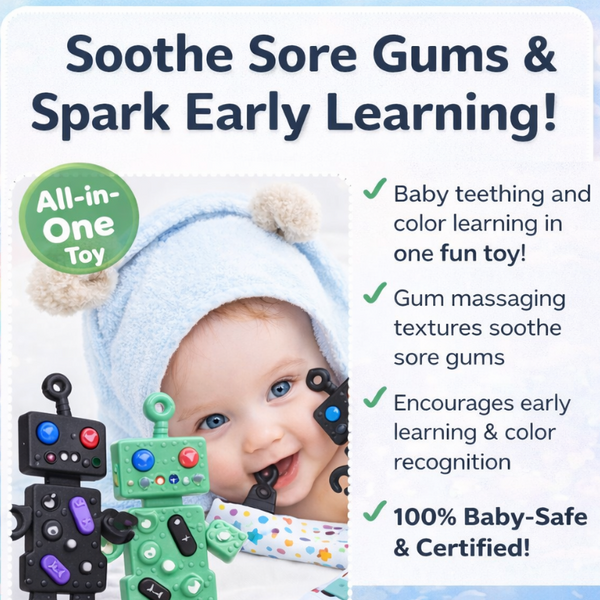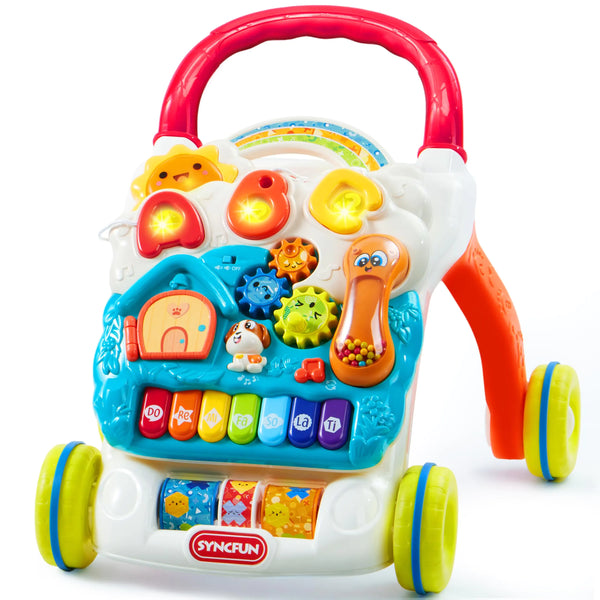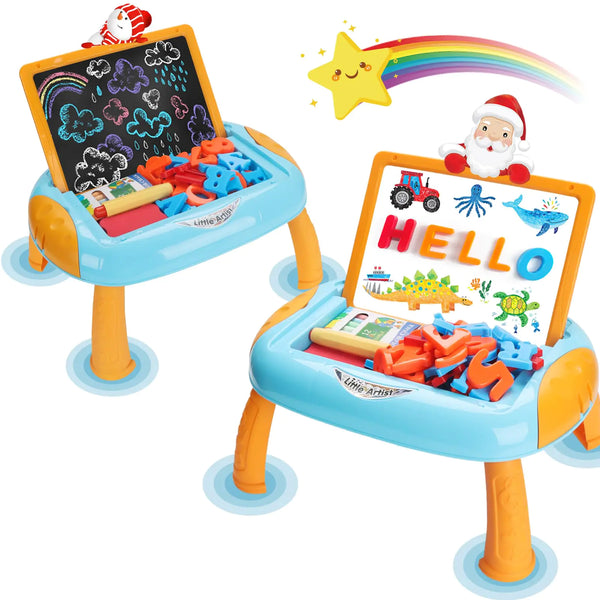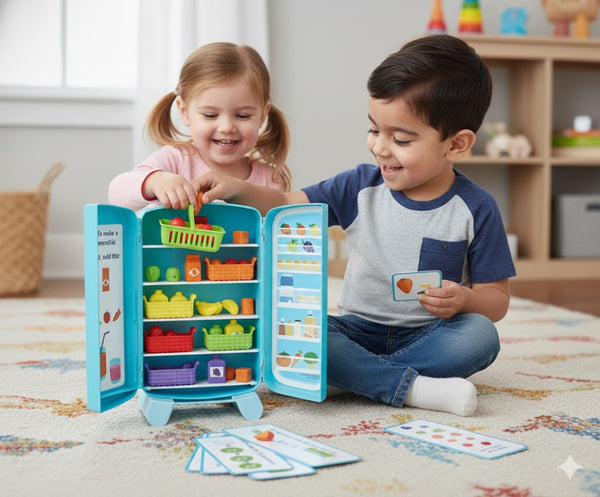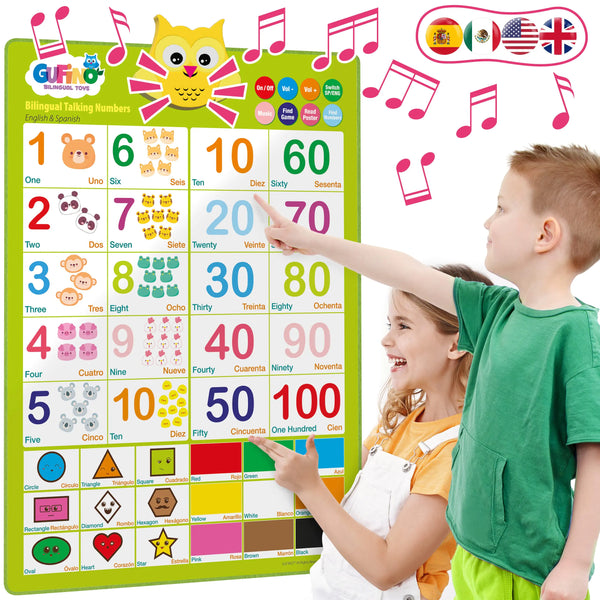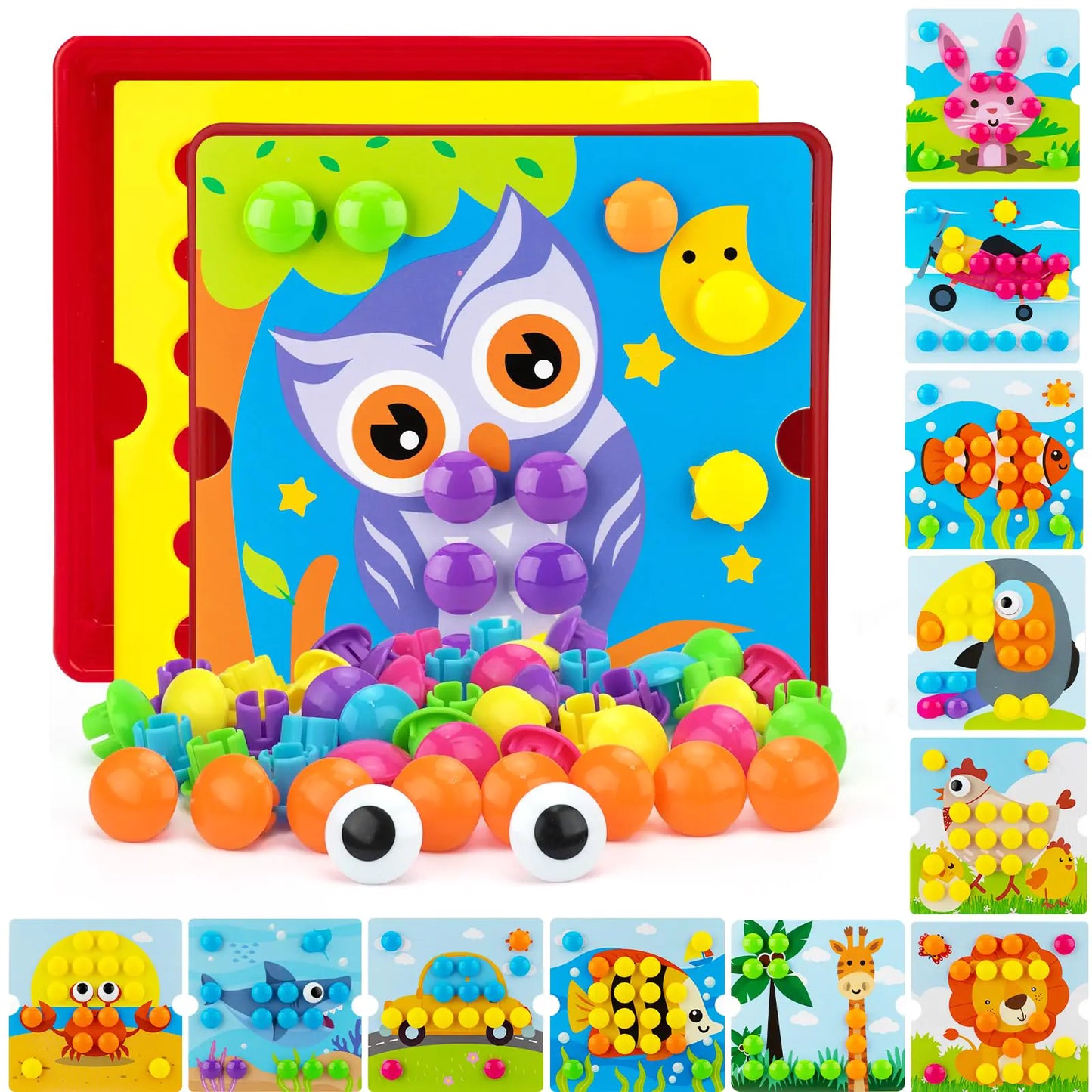Preschool learning flashcards are an effective and engaging tool that can significantly enhance early childhood education. These simple yet powerful resources are designed to introduce young learners to fundamental concepts such as letters, numbers, shapes, and colors. By incorporating flashcards into daily learning routines, educators and parents can create a fun, interactive, and educational experience for preschoolers. This article explores the various benefits and applications of preschool learning flashcards, highlighting how they can make a difference in early education.
Key Takeaways
- Preschool learning flashcards offer engaging visuals and interactive experiences that capture young learners' attention.
- Flashcards help build foundational skills in areas such as letter recognition, number sense, and vocabulary development.
- Incorporating flashcards into learning routines can boost memory and retention through repetition and active recall techniques.
- Flashcards can be used to teach a wide range of concepts, including letters, numbers, shapes, colors, and emotions.
- DIY flashcards offer a creative, personalized learning project for parents and children to enjoy together.
Why Preschool Learning Flashcards Are a Game Changer

Preschool flashcards are designed with bright colors and simple illustrations to capture young learners' attention. These engaging visuals make it easier for kids to focus and absorb new information. The vibrant designs are not just eye-catching but also help in making abstract concepts more concrete for preschoolers.
Flashcards offer an interactive way for children to learn. Unlike traditional methods, flashcards encourage active participation. Kids can touch, flip, and even play games with them, making the learning process more dynamic and enjoyable. This hands-on approach helps in better retention and understanding of the material.
Using flashcards can help preschoolers build foundational critical skills. From letter recognition to number sense, these cards cover a wide range of basic concepts. By incorporating flashcards into daily lessons, parents and educators can ensure that children develop the essential skills needed for future academic success.
Flashcards are more than just a learning tool; they are a fun and effective way to engage young minds and build a strong educational foundation.
How Flashcards Make Learning Fun for Preschoolers

Colorful and Captivating Designs
One of the best things about flashcards is their colorful and captivating designs. These vibrant visuals capture young children's attention and keep them engaged. When learning feels like play, kids are more likely to participate and retain information.
Incorporating Games and Activities
Flashcards can be easily incorporated into a variety of games and activities. Whether it's a matching game, a memory challenge, or a fast-paced trivia contest, these activities make learning interactive and enjoyable. Plus, they provide an excellent way for parents to bond with their kids while teaching them new concepts.
Encouraging Group Learning
Using flashcards in group settings can encourage social interaction and teamwork among preschoolers. Kids can take turns, help each other out, and even compete in friendly games. This not only makes learning fun but also helps develop social skills and build friendships.
Flashcards transform learning into a fun and interactive experience, making it easier for kids to absorb and retain new information.
Boosting Memory and Retention with Flashcards

Repetition and Review
Flashcards are fantastic for repetition and review. By consistently exposing your child to the same information, you help them build strong memory connections. Repetition is key to ensuring that the information sticks. Plus, it's a great way to identify which areas need more focus and which ones your child has mastered.
Visual Memory Enhancement
Using flashcards can significantly improve your child's visual memory. The combination of images and words engages multiple senses, making it easier for kids to remember the information. When cards are flashed quickly, the brain is forced to process and store information rapidly, thereby strengthening neural connections.
Active Recall Techniques
Active recall is a powerful technique for boosting memory. When your child tries to remember the answer before flipping the card, they're engaging in active recall. This method has been shown to strengthen memory traces and improve long-term retention. It's like giving their brain a workout every time they use flashcards!
Flashcards are not just about memorizing facts; they're about building a strong foundation for lifelong learning. By incorporating these simple tools into your child's daily routine, you're setting them up for success.
Teaching Letters and Numbers with Flashcards

Alphabet Recognition
Teaching preschoolers to recognize the alphabet is a fundamental step in their educational journey. Flashcards with vibrant letters can make this process engaging and fun. Preschool flashcards boost early literacy by helping kids memorize letters like A, B, and C through repeated exposure. This method is not only practical but also enjoyable for young learners.
Number Sense Development
Numbers can be tricky for preschoolers, but flashcards make learning them easier. By repeatedly flashing numbers 1, 2, and 3, children start to grasp basic numerical concepts. This repetitive method helps in building a strong foundation for future mathematical learning. Flashcards of numbers provide a concrete way for children to visualize mathematical concepts, making abstract ideas more tangible.
Combining Letters and Numbers
One of the best ways to enhance learning is by combining letters and numbers in a single session. This integrated approach helps children see the relationship between different types of information. For instance, you can use flashcards to spell out numbers (e.g., "one," "two," "three") while showing the corresponding numeral. This not only reinforces their alphabet recognition but also strengthens their number sense.
The most astonishing thing about the Flashcards learning method is that it can be used anywhere at any time or in between playing games.
Introducing Shapes and Colors Through Flashcards

Flashcards are a fantastic way to introduce basic shapes to preschoolers. Using flashcards with clear, colorful images of shapes like circles, squares, and triangles helps kids easily recognize and remember these forms. This foundational knowledge is crucial, as it lays the groundwork for more complex geometry concepts later on.
Colorful flashcards can make learning about colors a fun and engaging experience. The vibrant, flashing cards help kids understand the colors around them. You can even turn it into a game by asking your child to find objects around the house that match the colors on the flashcards. This not only reinforces their color recognition skills but also makes learning interactive and enjoyable.
One of the best ways to enhance learning is by combining shapes and colors on the same flashcards. For example, a red circle or a blue square can help children understand that objects can have multiple attributes. This multifaceted approach can be particularly effective at keeping young minds engaged. You can even incorporate these flashcards into puzzle games to make the learning process even more dynamic.
Flashcards are not just educational tools; they are gateways to a world of discovery and creativity for your preschooler.
Using Flashcards to Build Vocabulary

Sight Words Introduction
One of the best ways to kick-start your child's vocabulary is to introduce sight words through flashcards. These are common words that kids can recognize without having to sound them out. Flashcards are practical tools for this because they provide a visual and repetitive way to learn these essential words.
Expanding Language Skills
Flashcards can also help in expanding your child's language skills. By incorporating pictures and words, kids can make connections between objects and their names. This method is beneficial for visual learners who benefit from seeing the word alongside an image.
Contextual Learning
Using flashcards in sentences or short stories can help kids understand the context in which words are used. This not only builds their vocabulary but also enhances their comprehension skills. Flashcards improve visual memory, making it easier for kids to recall words and their meanings.
Flashcards can be a very successful self-testing strategy. Making flashcards is a method of “working” the material because it requires choosing which facts to put on one side and which descriptions to put on the other. Additionally, you will have a physical stack of cards containing the information instead of trying to remember specific facts, names, or terms, which frees up some memory.
Flashcards for Social and Emotional Development

Flashcards aren't just for academic learning; they can also play a crucial role in your child's social and emotional development. Using flashcards can help your child better understand and express their emotions, which is a key part of emotional intelligence. Interactive learning with talking flash cards enhances language acquisition and can also be adapted to teach emotional cues and social skills.
Understanding Emotions
Flashcards with different facial expressions can help your child recognize and name their feelings. This is especially useful for young children who are still learning to navigate their emotional world. By continually exposing them to these visual cues, they grow acclimated to them and can better articulate how they feel.
Social Interaction Skills
Using flashcards in group settings can encourage your child to interact with their peers. This not only helps in building social skills but also fosters a sense of community and teamwork. You can incorporate flashcards into daily routines to support effective bilingual education and enhance social interaction.
Building Empathy
Flashcards that depict various scenarios can be used to teach empathy. For example, cards showing someone sharing or helping another person can prompt discussions about kindness and understanding. This allows your child not only to recognize emotions in others but also to respond appropriately, building a foundation for strong empathetic skills.
Flashcards are a versatile tool that can support your child's emotional and social growth, making them a valuable addition to any educational toolkit.
Incorporating Flashcards into Daily Routines

Starting the day with a quick flashcard session can set a positive tone for learning. I find that my child is most alert in the morning, making it the perfect time to introduce new concepts. A few minutes of engaging with colorful flashcards can make a big difference in their ability to retain information throughout the day.
Incorporating flashcards into our bedtime routine has been a game-changer. This quiet time allows for a relaxed review of the day's learning. It's incredible how much my child can recall when we go over the flashcards right before bed. Plus, it helps reinforce what they've learned, making it easier for them to remember the next day.
Flashcards are incredibly versatile and can be used anywhere. Whether we're waiting at the doctor's office or on a long car ride, I always keep a set of flashcards handy. This not only keeps my child entertained but also turns idle time into productive learning moments. It's a great way to make the most of every learning opportunity.
Incorporating flashcards into daily routines doesn't have to be a chore. With a little creativity, it can become a fun and effective way to enhance your child's early education.
DIY Flashcards: A Fun Project for Parents and Kids

Materials Needed
Creating your own flashcards at home is one of the most economical and enjoyable ways to enhance your child's learning experience. All you need are some basic supplies:
- Regular paper or cardstock
- Scissors
- Markers, crayons, or colored pencils
- Glue or tape
- Optional: stickers, glitter, or other decorative items
Creative Design Ideas
Involving your child in the design process can be a fantastic way to boost their creativity and make learning more personal. Here are some ideas to get you started:
- Numbers and Math Notation: Create flashcards with numbers and simple math symbols.
- Alphabet Cards: Design cards with letters and corresponding images (A for Apple, B for Ball).
- Household Items: Use pictures of household items to make it relatable.
- Nature and Animals: Incorporate images of animals, fruits, and other natural elements.
Making Learning Personal
The best part about DIY flashcards is that they can be tailored to your child's interests and learning pace. This personalized approach not only makes learning more effective but also more enjoyable for your little one.
Pro Tip: Make a habit of creating new flashcards together regularly. This keeps the learning process fresh and exciting, and it’s a great way to spend quality time with your child.
Choosing the Right Flashcards for Your Preschooler

Selecting appropriate flashcards for your preschooler is more challenging than you think. Preschoolers in Pre-K may become bored with simple activities like drawing numbers and pictures, but they still need to be ready for reading or math. Look for flashcards that strike the ideal balance between fun and educational content. It's essential to use flashcards and other learning methods to provide a well-rounded education for preschoolers. This approach can cater to preschoolers’ diverse learning styles and ensure that they are engaged and motivated to learn.
When choosing flashcards, durability and safety are paramount. Preschoolers can be rough with their toys, so opt for flashcards made from sturdy materials that can withstand wear and tear. Additionally, ensure that the flashcards are free from small parts that could pose a choking hazard. Laminated or plastic-coated cards are often a good choice as they are easy to clean and more resistant to damage.
You can use flashcards to teach anything from words and numbers to shapes and even languages. When selecting flashcards, consider the areas where your child might need additional assistance. Look for sets that cover a variety of themes and topics to keep your child engaged. Interactive flashcards that include games or puzzles can make learning more enjoyable and effective for your preschooler.
Remember, the right set of flashcards can make a significant difference in your child's early education journey. Choose wisely to ensure they are both educational and fun.
The Role of Flashcards in Early Childhood Education

Flashcards are an essential tool in early childhood education, offering a simple yet effective way to support the preschool curriculum. By incorporating flashcards into daily learning, parents can help their children grasp fundamental concepts in a fun and engaging manner. Flashcards promote active recall through self-testing, a crucial factor in memory retention and understanding.
Supporting Preschool Curriculum
Flashcards are versatile and can be used to reinforce a wide range of subjects, from letters and numbers to shapes and colors. They align well with the preschool curriculum, making it easier for children to follow along and grasp new concepts. This alignment ensures that learning is both structured and enjoyable.
Parental Involvement
Using flashcards at home allows parents to take an active role in their child's education. This involvement not only strengthens the parent-child bond but also provides a supportive learning environment. Parents can customize flashcard sessions to focus on areas where their child may need extra help, making learning more personalized and effective.
Adapting to Individual Learning Styles
Every child learns differently, and flashcards offer the flexibility to accommodate different learning styles. Whether your child is a visual learner who benefits from engaging visuals or a kinesthetic learner who enjoys interactive activities, flashcards can be tailored to meet their needs. This adaptability makes flashcards a valuable tool for enhancing early education.
Incorporating flashcards into your child's daily routine can make learning a delightful and enriching experience. From morning sessions to bedtime reviews, flashcards offer endless opportunities for educational fun.
In conclusion, flashcards are a powerful tool in early childhood education, providing a foundation for lifelong learning. By supporting the preschool curriculum, involving parents, and adapting to individual learning styles, flashcards can significantly enhance your child's educational journey.
Flashcards are a powerful tool in early childhood education, helping young learners to develop memory, recognition, and cognitive skills. They make learning fun and interactive, which is crucial for keeping children engaged. To explore a wide range of educational tools and toys that can enhance your child's learning experience, visit our website today!
In a nutshell, preschool learning flashcards are a fantastic tool to boost early education. They make learning fun, interactive, and engaging for young minds. By incorporating flashcards into daily lessons, educators and caregivers can help kids develop essential skills like letter recognition, number sense, and vocabulary. Plus, the repetitive nature of flashcards ensures that kids get plenty of practice, which is key for retention. So, if you're looking to give your preschooler a head start, flashcards might be the way to go!
Frequently Asked Questions
What are preschool learning flashcards?
Preschool learning flashcards are educational tools designed to teach young children basic concepts such as letters, numbers, shapes, colors, and vocabulary through simple illustrations, bright colors, and easy-to-read text.
How do flashcards benefit preschoolers?
Flashcards engage young learners by making learning fun and interactive. They help develop foundational skills such as letter recognition, number sense, and essential sight words. Additionally, they encourage repetition and review, which are crucial for memory and retention.
At what age can children start using flashcards?
Children can start using flashcards as early as 2 years old. However, the content should be age-appropriate and designed to match their developmental stage.
How can I make learning with flashcards fun for my preschooler?
Incorporate colorful, captivating designs, use games and activities, and encourage group learning to make the experience more enjoyable. Personalizing the flashcards with your child’s interests can also make learning more engaging.
Can flashcards help with social and emotional development?
Yes, flashcards can be used to teach social and emotional skills by covering topics such as understanding emotions, social interaction, and empathy.
Are there any DIY flashcard projects for parents and kids?
Yes, creating DIY flashcards can be a fun project for parents and kids. You can use materials like cardstock, markers, and stickers. This allows for creative design ideas and makes learning personal and meaningful.
What should I consider when choosing flashcards for my preschooler?
When choosing flashcards, consider age-appropriate content, durability and safety, and themes and topics that interest your child. Ensure the flashcards are made of non-toxic materials and have rounded edges for safety.
How can I incorporate flashcards into daily routines?
You can incorporate flashcards into daily routines by having morning flashcard sessions, bedtime reviews, and on-the-go learning. Consistent practice helps reinforce the concepts being taught.

